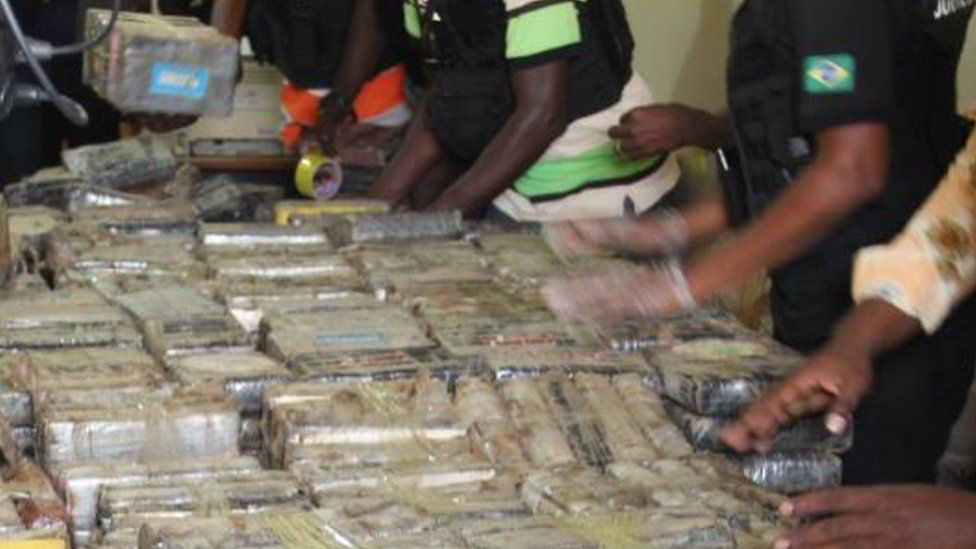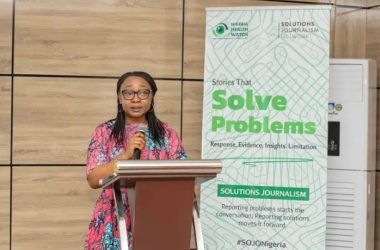By Kemo Cham
Kenya’s amateurish handling of the case of Abdullah El-Faisal, the ‘radical’ Jamaican-born Muslim cleric who has left an awful trail in the wake of his controversial deportation from the country, has highlighted so many facts about Africa. Firstly, it caught the authorities in the East African nation off guard that someone they wouldn’t have knowingly allowed into their country was already making contact with the section of the population whom he would have goaded; that is, if he actually intended to engage in what the world has come to know him for. As a result, it has not only demonstrated how hastily taken decisions can be counterproductive, but it also showed how ill-prepared and unreliable African countries can be in efforts to counter what appears to be the most pressing of issues in the world at present – the menace of terrorism. Secondly, it has proven that radical measures can force lax countries which have been serving as reservoir of terror, either knowingly or unknowingly, to put their houses in order for the good of the world’s security as we saw in Nigeria. And thirdly, it helped to illustrate how insensitivity and incompetence can cost a whole nation its image, as we saw in Gambia. The existence of this strange section of the world’s society who would forfeit all life’s worth for some strange imaginary ideologies is as obvious as the existence of life. It is only fitting, therefore, for every rightful thinking persons to be alert about this new, alien and absurd phenomenon of ‘jihad’ they embody, which absolutely has no place in the real teaching of Islam. And in doing so, we must also be cautious enough with regards to the method we employ in order not to stimulate more of existing problem instead of stopping it, again as we saw in Kenya. Like a young child impulsively responding to a sudden exposure to a burning substance, Kenya just bundled El-Faisal on the next flight to only God knows where. And then Immigration Minister Otieno Kajwang, after taking that premature decision, told the whole world that El-Faisal was on his way to Gambia where the authorities had agreed to help him reconnect flight to his native Jamaica. “As I speak now, he is in Banjul,” Minister Kajwang said. “He requested to be taken there, and after authorities in Gambia agreed to receive him. We did what was required.” It turned out that Gambia never gave such assurance, nor did any Gambian authority speak to any Kenyan authority. At least that is what we can make out of present information available. What El-Faisal’s hasty deportation did not cause, his treatment on his ignominious return from Nigeria has caused. But of course the manner of his deportation was bound to inspire that outcom e. Maybe the honourable Immigration Minister of Kenya could have done a little better than that. At least this argument will remain so until such a time when Kenya or Mr Kajwang himself could come up with a convincing explanation about what led to El-Faisal’s abortive journey to Gambia, which resulted into the bloodbath that ensued in the coastal city of Mombasa in Kenya. And until such a time, we are not likely to figure out yet where the problem lies about how we got to this situation. And like Kenya, in Gambia also the authorities owe the people some explanation regarding the whole agreement the minister in Kenya alleged. Except something fundamental is wrong with the honourable minister, he couldn’t possibly have attributed Gambia to this El-Faisal saga if there was no prior discussion between both countries. Mr Kajwang’s blaming of the media later for sending out ‘‘alarmist’’ reports that portrayed the religious leader in an “alarmist and negative” way, which he implied caused the Gambian authorities to change their mind, supports this view. And instead of finding out who gave a word to the Kenyans, the Gambian authorities engaged the ‘‘international media’’, which they blamed for ‘‘tarnishing’’ the image of the country. One wonders why the Gambian authorities would remain mute all this while as the news of the arrival of an uninvited guest brim over in the ‘‘international media.’’ And until the more serious Nigerians, just recovering from the ‘Christmas Bombing’ experience, returned him without any delay, we would not hear the official press release and condemnatory statement from the Gambian government. There is every reason to assume that State House in Banjul might have again reminded the ministries concerned what their responsibilities were, which explains the excessively ‘‘patriotic’’ sounded words that dominantly resonated in the unusually lengthy Gambia government press release. And as part of the damage limitation spree, a rather unhelpful, not-so-well-researched editorial piece by the Daily Observer, captioned: ‘‘Gambia not for terrorist,’’ was published. It is well understandable that the role is to amplify the points of the government, but this, it is also well expected, mustn’t be done in such a way that it accentuates one’s weakness, thereby portraying Gambians in a bad light. Why attacking the international media when they were only reporting what news makers had said? It was the Kenyan government through the Immigration Minister which said the Muslim cleric had been deported to Gambia, via Nigeria, which was actually true. The whole world read, listened or watched the story as it was reported. And all this while, the relevant authorities in Banjul, many of them well known for their aloofness to the press, remained tight-lipped about the issue, until when Nigeria refused transit visa to El Faisal and they started kicking all over the place for attention. If the concerned government departments meant what they are now trying to make Gambians and the rest of the world believe they should have followed the right diplomatic channel and caution Kenya, but not to stage a fruitless attempt at playing with the intelligence of the world. We never heard any condemnation of the Kenyan minister for unfairly associating Gambia to the whole saga. Could it be that there is some truth in his statement? ‘‘The report by some international media networks about a radical Muslim cleric, who has been linked to
e. Maybe the honourable Immigration Minister of Kenya could have done a little better than that. At least this argument will remain so until such a time when Kenya or Mr Kajwang himself could come up with a convincing explanation about what led to El-Faisal’s abortive journey to Gambia, which resulted into the bloodbath that ensued in the coastal city of Mombasa in Kenya. And until such a time, we are not likely to figure out yet where the problem lies about how we got to this situation. And like Kenya, in Gambia also the authorities owe the people some explanation regarding the whole agreement the minister in Kenya alleged. Except something fundamental is wrong with the honourable minister, he couldn’t possibly have attributed Gambia to this El-Faisal saga if there was no prior discussion between both countries. Mr Kajwang’s blaming of the media later for sending out ‘‘alarmist’’ reports that portrayed the religious leader in an “alarmist and negative” way, which he implied caused the Gambian authorities to change their mind, supports this view. And instead of finding out who gave a word to the Kenyans, the Gambian authorities engaged the ‘‘international media’’, which they blamed for ‘‘tarnishing’’ the image of the country. One wonders why the Gambian authorities would remain mute all this while as the news of the arrival of an uninvited guest brim over in the ‘‘international media.’’ And until the more serious Nigerians, just recovering from the ‘Christmas Bombing’ experience, returned him without any delay, we would not hear the official press release and condemnatory statement from the Gambian government. There is every reason to assume that State House in Banjul might have again reminded the ministries concerned what their responsibilities were, which explains the excessively ‘‘patriotic’’ sounded words that dominantly resonated in the unusually lengthy Gambia government press release. And as part of the damage limitation spree, a rather unhelpful, not-so-well-researched editorial piece by the Daily Observer, captioned: ‘‘Gambia not for terrorist,’’ was published. It is well understandable that the role is to amplify the points of the government, but this, it is also well expected, mustn’t be done in such a way that it accentuates one’s weakness, thereby portraying Gambians in a bad light. Why attacking the international media when they were only reporting what news makers had said? It was the Kenyan government through the Immigration Minister which said the Muslim cleric had been deported to Gambia, via Nigeria, which was actually true. The whole world read, listened or watched the story as it was reported. And all this while, the relevant authorities in Banjul, many of them well known for their aloofness to the press, remained tight-lipped about the issue, until when Nigeria refused transit visa to El Faisal and they started kicking all over the place for attention. If the concerned government departments meant what they are now trying to make Gambians and the rest of the world believe they should have followed the right diplomatic channel and caution Kenya, but not to stage a fruitless attempt at playing with the intelligence of the world. We never heard any condemnation of the Kenyan minister for unfairly associating Gambia to the whole saga. Could it be that there is some truth in his statement? ‘‘The report by some international media networks about a radical Muslim cleric, who has been linked to terrorism being deported from Kenya to Banjul, without making efforts to authenticate their report from either Kenyan or Gambia government or both shows that these media networks are only hiding behind the tinted glass of journalism to propagate their imperial scheme…’’ Daily Observer, Wednesday, 13th January 2010. It would have been well acceptable if it’d been meant to say ‘to authenticate the report with the Kenyan government or El Faisal himself’, but certainly not with the Gambia government. Firstly, it is absurd that we couldn’t just see that it was the Kenyan Immigration minister himself who was quoted. Who else does one find out from in such a case? Secondly, it would have been easier to get to El Faisal himself for authentication of the story than to get any Gambia government official talk on the issue. There is no need for any immediate reference to prove this point. However, to give an idea about how counterproductive it is that certain people are part of the powers that be in Gambia, I will here highlight how the incompetent and arrogant attitude of one man contributed in putting the Gambia and Gambians in all this stress. As soon as the news broke that El-Faisal was on his way to Gambia, a particular local reporter who files for an international news agency contacted the press officer at State House in Banjul, Modou Saidy, for clarification on the matter. Saidy characteristically vulgarly dismissed this reporter on figuring out his identity. Is that the way officials paid by Gambians to serve the people are going to help make a sound Gambia? As a result of Saidy’s insensitivity, it would take a hurriedly prepared joint ministerial press release to clear the country’s image. I can understand the level of animosity between Banjul and media, save for GRTS and Daily Observer. But that issue was way too important to be thrown aside like that. The least Saidy could have done was to take it up with the relevant authorities. I bet he did not do that, else the situation wouldn’t have assumed it final shape. It is important that the Gambian government mount an investigation to ascertaining who gave a word to Kenya, or if they Kenyan minister was only playing a game with the international media, thereby putting Gambia’s image on the line.
terrorism being deported from Kenya to Banjul, without making efforts to authenticate their report from either Kenyan or Gambia government or both shows that these media networks are only hiding behind the tinted glass of journalism to propagate their imperial scheme…’’ Daily Observer, Wednesday, 13th January 2010. It would have been well acceptable if it’d been meant to say ‘to authenticate the report with the Kenyan government or El Faisal himself’, but certainly not with the Gambia government. Firstly, it is absurd that we couldn’t just see that it was the Kenyan Immigration minister himself who was quoted. Who else does one find out from in such a case? Secondly, it would have been easier to get to El Faisal himself for authentication of the story than to get any Gambia government official talk on the issue. There is no need for any immediate reference to prove this point. However, to give an idea about how counterproductive it is that certain people are part of the powers that be in Gambia, I will here highlight how the incompetent and arrogant attitude of one man contributed in putting the Gambia and Gambians in all this stress. As soon as the news broke that El-Faisal was on his way to Gambia, a particular local reporter who files for an international news agency contacted the press officer at State House in Banjul, Modou Saidy, for clarification on the matter. Saidy characteristically vulgarly dismissed this reporter on figuring out his identity. Is that the way officials paid by Gambians to serve the people are going to help make a sound Gambia? As a result of Saidy’s insensitivity, it would take a hurriedly prepared joint ministerial press release to clear the country’s image. I can understand the level of animosity between Banjul and media, save for GRTS and Daily Observer. But that issue was way too important to be thrown aside like that. The least Saidy could have done was to take it up with the relevant authorities. I bet he did not do that, else the situation wouldn’t have assumed it final shape. It is important that the Gambian government mount an investigation to ascertaining who gave a word to Kenya, or if they Kenyan minister was only playing a game with the international media, thereby putting Gambia’s image on the line.
Trending :
- 2 hours ago
- NPP Announces Mega Rally In Mamuda Village To Launch 2026 Re-Election Campaign
- 3 hours ago
- Sabally Criticises Gibba’s Religious Conduct, Says “A Beard Doesn’t Make You A Good Muslim”
- 22 hours ago
- Halifa & CDS Cham Contradict Each Other
- 3 days ago
- Darboe Urges Barrow To Convene National Conference On Irregular Migration, Strengthen Maritime Security
- 3 days ago
- Halifa Says Need To Safeguard PDOIS Prevented Party From Joining NPP Coalition




